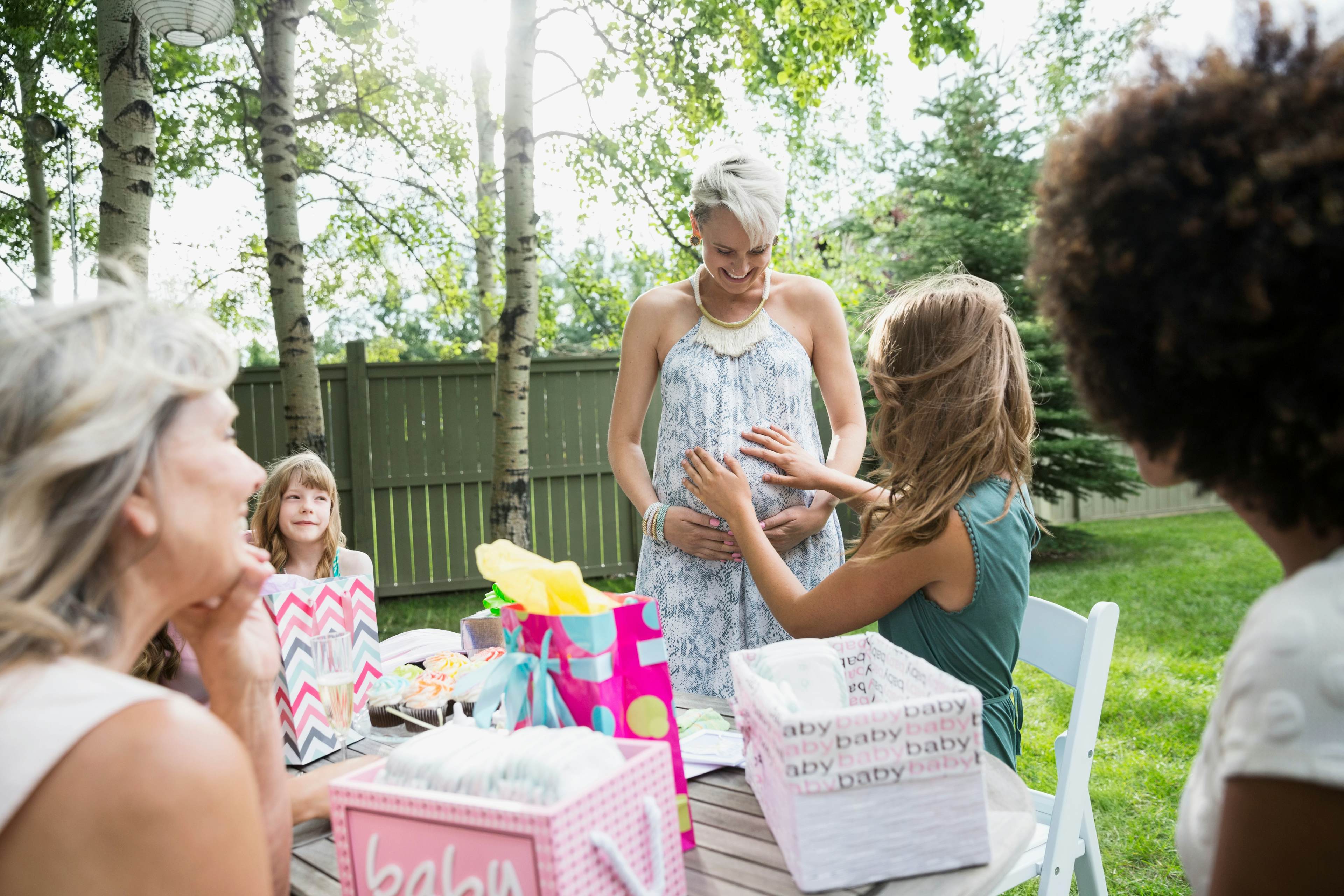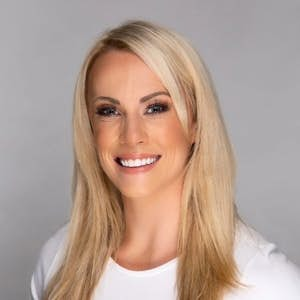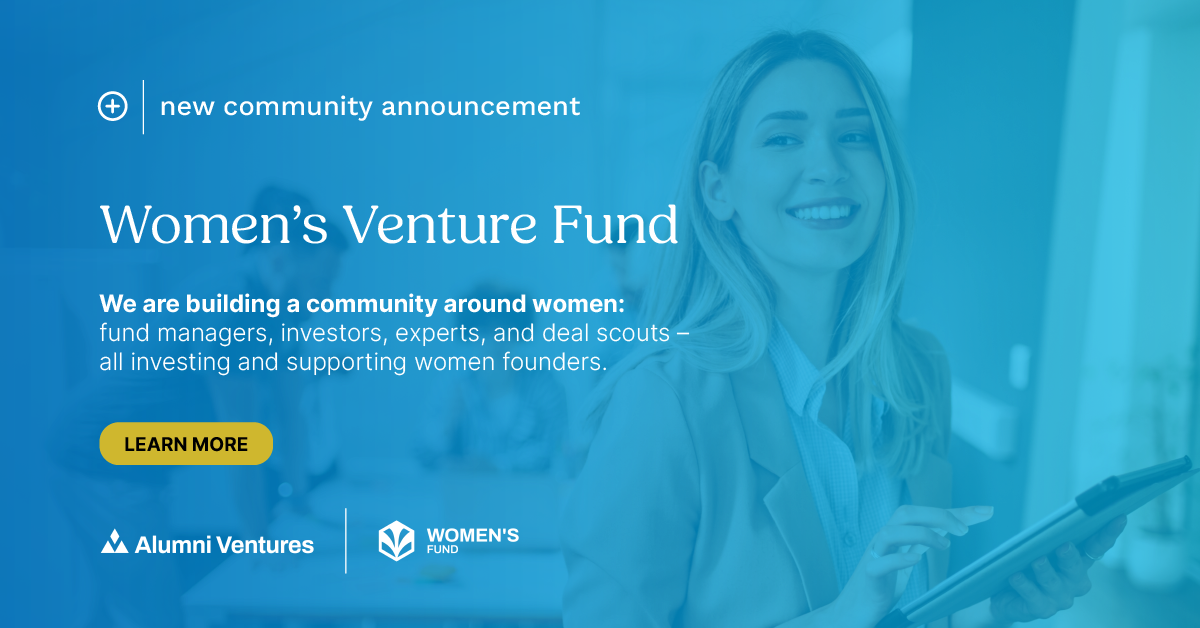Beyond the Baby Shower
Inside Modern Twists on the Journey to Parenthood

This post highlights a lesbian couple’s untraditional path to parenthood recounted by their close friend, Aoife Fortin, who shares her experience at the couple’s ‘Pick the Sperm’ party. Complemented by Brittney Wade’s insights into the booming sector of fertility tech startups, this piece provides a comprehensive view of the complexities involved in IVF, donor selection, and various facets of fertility treatments that millions face annually. It not only offers a glimpse into challenges and triumphs but also underscores the transformative role of innovative startups in shaping the future of fertility tech, striving to make the journey to parenthood more accessible and inclusive.
AOIFE’S TAKE
In a world where weekends are often filled with weddings, baby showers, and the increasingly popular gender-reveal parties, I thought I’d seen it all. That was until an invitation to a ‘Pick the Sperm’ party landed in my inbox, courtesy of a lesbian couple I’ve been friends with for 10 years who were now on their own journey to parenthood.

Aoife Fortin
Senior Director, People & TalentAoife is an experienced People Leader, having worked at Salesforce and hypergrowth startups such as Zoominfo, Demandware, and Transmit Security. She has ten years of experience as a private investor with a real estate and health and fitness portfolio. She has a BS from the University of Massachusetts and is pursuing a master's from the Wharton School of Business.
As curiosity piqued and a whirl of questions flooded my mind — from wardrobe dilemmas to the appropriateness of bringing my toddler along — I decided to avoid any potential faux pas and reached out to the host. With a hearty laugh, she shared her own initial bafflement. Her advice was simple yet oddly intriguing: “Just come in a swimsuit, bring the little one, and leave the gift worries behind.” So, with a mix of excitement and uncertainty, I set off to the host’s home, eager to witness this unconventional celebration and support my close friends.
This blog details my experience but also my explorations into understanding the challenges and opportunities in taking unconventional routes to parenthood. It also shares my colleague Brittney’s insights into the good news: Innovative startups that are launching to deliver better options and services.
The Party
Imagine sifting through a catalog of potential fathers, swiping left and right as if you are on a dating app. Welcome to our ‘Pick the Sperm’ party — a soirée to gather close friends and family to help choose the sperm donor of a couple’s unborn child. For my friends, thumbing through potential biological contributors like browsing Netflix for the perfect movie challenges not just the norms of parenthood, but a societal norm about couplehood.
Choosing a Donor
The party mood was definitely light, but the decision was a deeply serious matter. IVF is expensive and includes legal complexities and medical testing to confirm the person carrying the child is ready to become pregnant. The couple utilized Seattle Sperm Bank and had completed the multiple steps leading up to the selection.
Now, as we flipped through 25 different profiles, we proceeded to shortlist donors, exploring their stories and backgrounds. We then took a deeper dive, listening to the donors speak about their family history and heritage as we reviewed an information sheet with their height, weight, eye color, and hair color. This was a big decision given that the chosen donor would play a major factor in the couple’s baby and their traits. It was also important that the partner who wouldn’t be carrying felt part of the decision.
Our shortlist came down to three: Spike, Everest, and Apollo (all pseudonyms; donor names are kept confidential):
- Spike was over 6’ tall, dark brown hair, 200 lbs ,with brown eyes. He did not graduate college, worked a blue collar job, had a very deep voice, and was of Italian/Irish descent. He donated because he was looking to make some extra money and didn’t want to have an open donorship (disclosing his identity).
- Everest was 5’10, light brown hair, 185 lbs ,with green eyes. He had a Master’s degree and was of German, Swedish, Polish, and English descent. He was looking to make some extra money to pay off his student loans. He was an open donor and hoped to help someone on their journey to parenthood.
- Apollo was 5’10, brown hair, 185 lbs, with blue eyes. He was a college graduate and of German and Irish descent. He was soft spoken and genuine and decided to donate to help others become parents. He was an open donor.
We cast ballots into a glass vase, with everyone voting for their top choice. The unanimous winner was Apollo. He was a great mix of the couple, their family heritage, and backgrounds. Apollo was also an open sperm donor. Donors can choose to remain anonymous forever or to allow their potential children to contact them when they become adults.
The party was tremendous fun, but served important purposes. This communal decision-making process not only helped the couple choose a donor but also strengthened the bond with their support network, making the journey a shared experience.
IVF Process
With a donor chosen, the couple now could begin the process. They worked with Boston IVF, who had a facility nearby. IVF treatments, known for their exorbitant costs ($15,000-$30,000) and uncertain outcomes, strained the couple’s resources and even their relationship as they went through repeated attempts without success. Yet, their commitment to each other and their shared desire for a child kept them resilient.
Legal & Societal Hurdles
Throughout the couple’s journey to parenthood, they experienced everything from subtle bias to blatant opposition. Despite the legalization of same-sex marriage, the couple found that acceptance of their family structure lagged behind, adding emotional strain to their journey.
Legally, the path was also fraught with complexities. The couple heard horror stories of couples divorcing and only the biological parent having rights to the child or sperm donors claiming rights. This legal ambiguity prompted them to take proactive measures to ensure both were equally recognized as parents, financially and emotionally.
Financial, Insurance, and Process
Financially, the journey to parenthood was a steep climb. The women had an initial consultation with their fertility specialist, who ordered a series labs and other tests. Most of this was covered by insurance. After a uterus ultrasound, it was determined that a common surgical procedure to remove small polyps would be beneficial and increase the efficacy of their treatment — another expense.
Once the procedure was complete, the doctor created a treatment plan and submitted to insurance for authorization of their first intrauterine insemination (IUI). Their plan denied this request, and the couple discovered that in order to use their insurance benefit, they would be required to pay for six IUIs out of pocket. They then turned to their other employer’s insurance plan and starting at the beginning of out-of-pocket costs under new coverage. Other costs along the way included out-of-pocket cost for medications that ran over $15,000.
Once the details were ironed out and authorization was in place, it was time for their first IUI. This involved blood work, ultrasounds, monitoring, and injections, and then finally a procedure in the clinic that took less than 5 minutes. Then another two weeks of waiting until they learned the procedure hadn’t worked.
They would repeat this process three more times, two with added medications to increase the number of follicles that would hopefully release an egg. Ultimately, they found themselves with nothing but negative results and thousands spent into an unsuccessful journey.
The couple’s relationship survived, but this is a story of other kinds of failure: societal, financial, legal, and medical. As venture capitalists, we focus on the latter and pose it as an opportunity: how can startups innovate to improve the process? Finally, some good news: fertility tech companies have stepped up, providing future parents with renewed hope.
BRITTNEY’S TAKE
Fertility Company Spotlights
Fertility services is a major market, expected to grow to $90.8 billion by 2031. Worldwide, one in six people have experienced infertility, while 1/3 of all Americans have used or known someone who has used a fertility service.

Brittney Wade
Venture CapitalistBrittney brings investing, product, and operational experience from her time working with both enterprises and startups. Prior to joining AV, Brittney worked as a Product Manager at Mastercard for buy-now-pay-later and installment solutions, building new products and scaling them to customers globally. She transitioned to the startup ecosystem, working with seed- to growth-stage companies. At Trove, a Series D startup, she led product development for the launch of Canada Goose’s first circular economy resale program in Canada and the US. She joined AV as a member of the Seed team that invests in pre-seed and seed-stage companies prior to joining the Green D Ventures’ team. She received her BA from Columbia University and holds an MBA from Dartmouth’s Tuck School of Business, where she served as a student board member for the Magnuson Center for Entrepreneurship.
Today, several early-stage companies are making the journey to parenthood more accessible, affordable, and empowering for all families. Innovative approaches encompass fertility treatments — including IVF and egg freezing — to wellness and LGBTQ+ care.
Alumni Ventures has long backed ventures addressing this problem. From improving the affordability of fertility treatments to helping expectant families build a care team before, during, and after pregnancy, several companies within the AV portfolio are reshaping the future of fertility tech.
Here are spotlights on just four.
Kindbody
- Stage: Series C
- Capital Raised: $344.4M
Since its inception in 2018, Kindbody has emerged as a force in reproductive healthcare, providing an array of fertility services such as egg freezing and in vitro fertilization (IVF). Setting itself apart with a tech-enabled and fully virtual care facility, Kindbody seamlessly integrates mental health sessions and wellness coaching into their services, all delivered with a compassionate touch. Notably, the company has also been at the forefront of LGBTQ+ focused family building and care, showcasing a commitment to inclusivity and diverse family-building journeys.
Today, Kindbody is a leading fertility clinic network and has expanded access to treatments through their employee benefit offering that covers the full spectrum of reproductive care from preconception to postpartum. The company is now the trusted fertility benefits provider for 132+ employers, covering almost 3 million lives.
Future Family
- Stage: Series B
- Capital Raised: $146.5M
While fertility treatment has expanded, allowing more individuals to attain their goal of building a family of their own, the cost of doing so remains challenging and even outright prohibitive. Enter Claire Tomkins and her company Future Family, whose mission is to help everyone build the family of their dreams by removing the barriers of accessing fertility treatment: cost and complexity. The company’s unique model includes loans and subscription plans designed to cover the costs of fertility treatments, including in vitro fertilization (IVF) and egg freezing, starting at $250/month.
In addition to financing, Future Family provides coaching and support to their users throughout fertility treatment. Their coaching guides individuals through the emotional and practical aspects of the process, reflecting Future Family’s commitment to users as they navigate the complexities of reproductive health. This approach has positioned Future Family as a prominent player in the fertility space, addressing not only the medical aspects of fertility but also the financial and emotional components.
Twentyeight Health
- Series: Seed
- Capital Raised: $15.4M
In a landscape where the availability of fertility treatments has expanded for many women, underserved community members often face delays in access or sometimes no access at all. Enter Twentyeight Health, a women’s telehealth platform with a dedicated focus on enhancing reproductive and sexual healthcare accessibility. The platform is engineered by a team deeply committed to reshaping the healthcare landscape, particularly for underprivileged individuals.
Twentyeight Health stands out by accepting Medicaid in several operating states and forging partnerships with nonprofits to extend free healthcare services to those with financial needs. A notable aspect of the platform is its deployment of physicians experienced in providing care to low-income and communities of color.
Moreover, Twentyeight ensures ongoing care at no additional cost through unlimited doctor follow-up messages, facilitating discussions on topics like prescription updates and potential side effects. For women navigating pregnancy or planning to do so, Twentyeight offers a diverse range of supplement brands aimed at fostering healthier pregnancies and births. Collectively, these services contribute to the creation of accessible and equitable healthcare, supporting women at various stages of their fertility journey.
Oula Health
- Series: Series A
- Capital Raised: $23M
The old saying goes, “It takes a village to raise a child.” However, finding a support system is not always obvious or easy. Oula has made this process easier by redesigning maternity care from the ground up. They have built a modern maternity center combining the best of obstetrics and midwifery care to deliver a more evidence-based, personalized pregnancy experience. In their clinics, women have access to wraparound pregnancy and postpartum care — including prenatal visits, care team support, delivery services, and fourth-trimester care. Oula’s holistic approach to pregnancy and family building provides women with both an evidence-based and personalized pregnancy experience.
The company also makes it easy for women to connect and find community around their shared experiences and journeys to parenthood. Oula frequently hosts events with mission-aligned brands to help patients find supplemental services such as doulas or lactation consultants. Education is also emphasized, with ample content around Stages of Labor, Coping & Comfort Techniques and Making Your Birth Plan & Preferences for women to leverage. With all these resources, Oula allows women to enter the journey of motherhood with a village from the start.
Venture capitalists are, by nature, optimistic. We believe there are better solutions that will not only benefit investors but also make a much greater impact, improving lives and society.
If you’d like to learn more about how we are investing in the future, visit the links below.
Want to learn more?
View all our available funds and secure data rooms, or schedule an intro call.
New to AV?
Sign up and access exclusive venture content.
This communication is from Alumni Ventures, a for-profit venture capital company that is not affiliated with or endorsed by any school. It is not personalized advice, and AV only provides advice to its client funds. This communication includes forward-looking statements, generally consisting of any statement pertaining to any issue other than historical fact, including without limitation predictions, financial projections, the anticipated results of the execution of any plan or strategy, the expectation or belief of the speaker, or other events or circumstances to exist in the future. Forward-looking statements are not representations of actual fact, depend on certain assumptions that may not be realized, and are not guaranteed to occur. Any forward-looking statements included in this communication speak only as of the date of the communication. AV and its affiliates disclaim any obligation to update, amend, or alter such forward-looking statements, whether due to subsequent events, new information, or otherwise.




